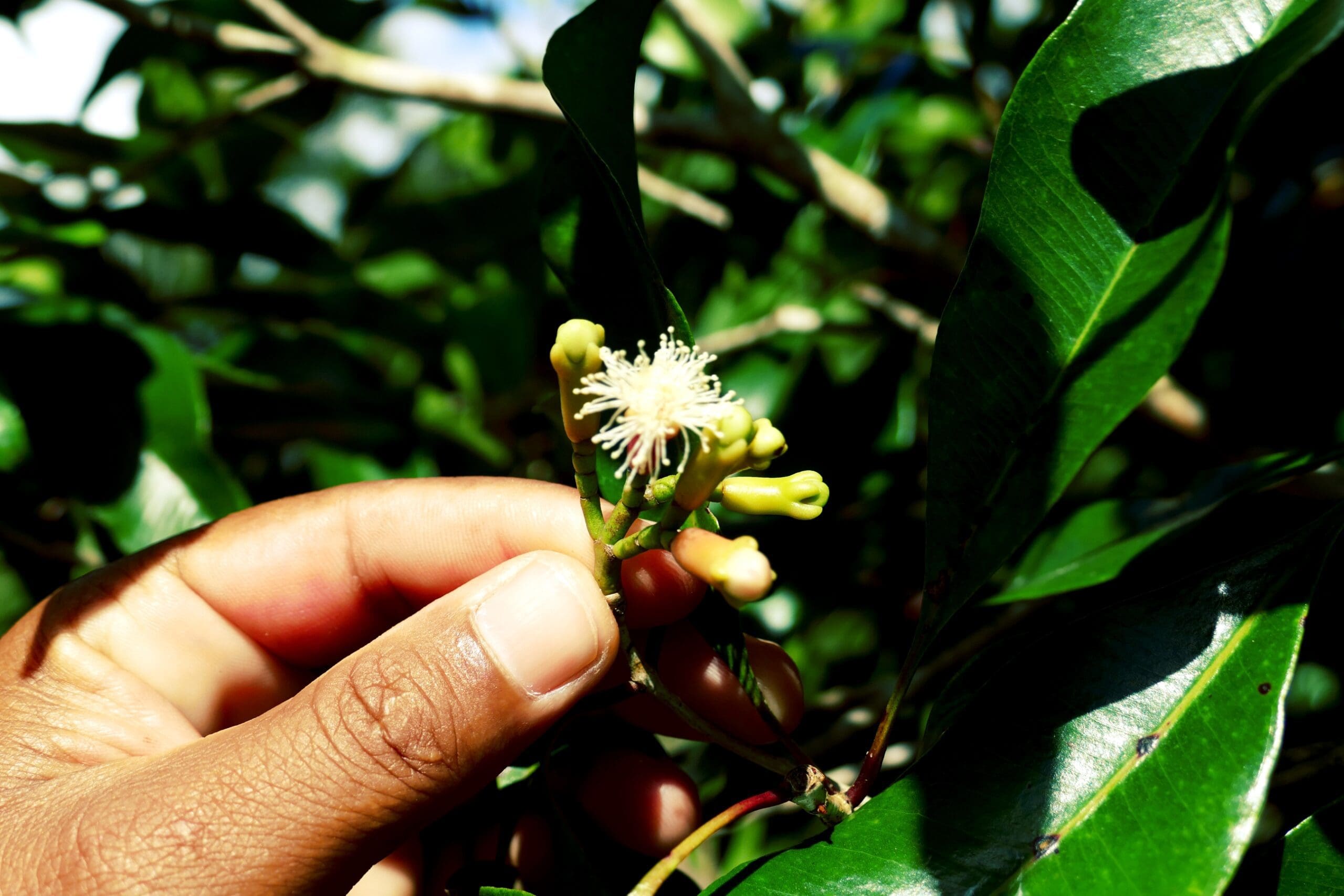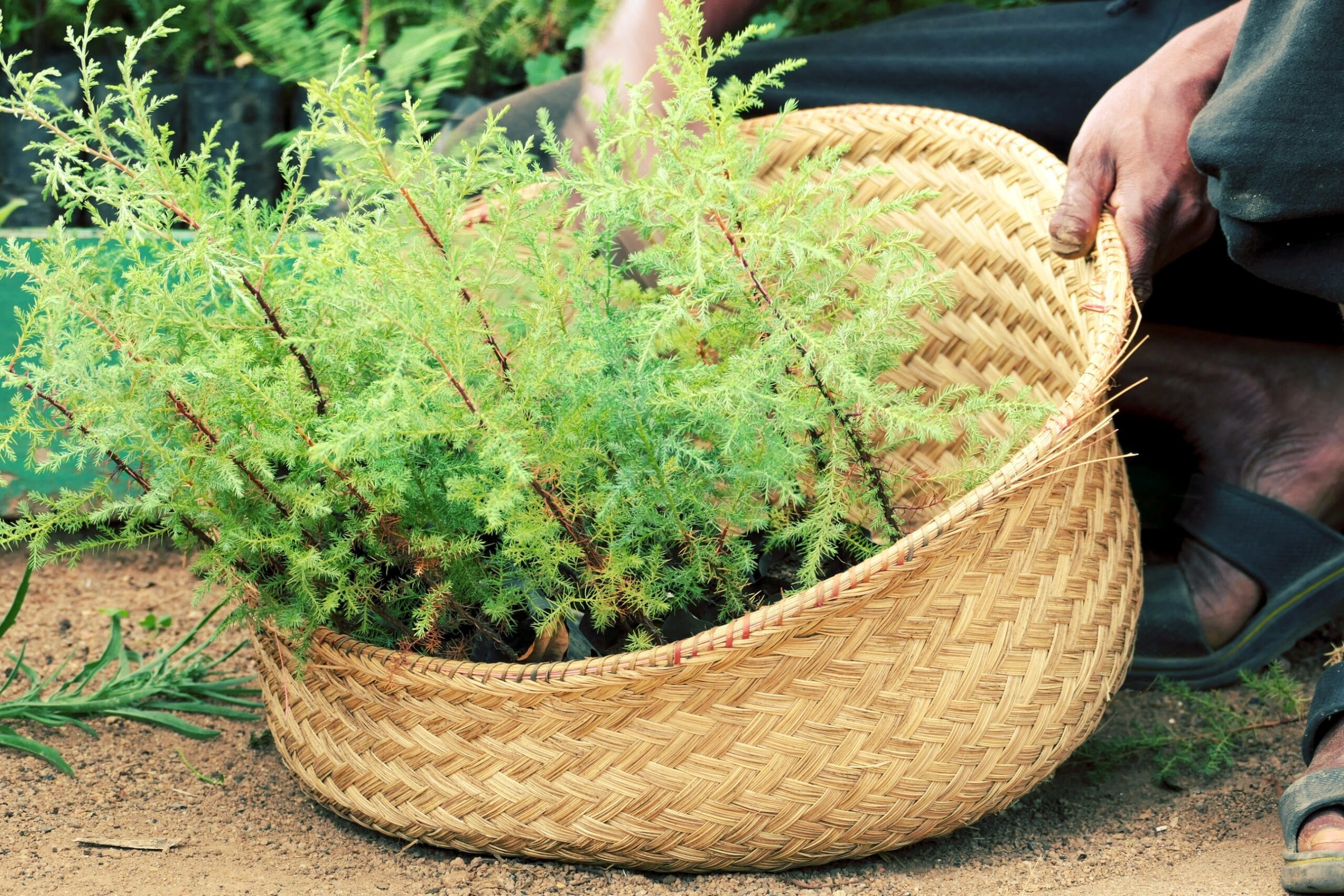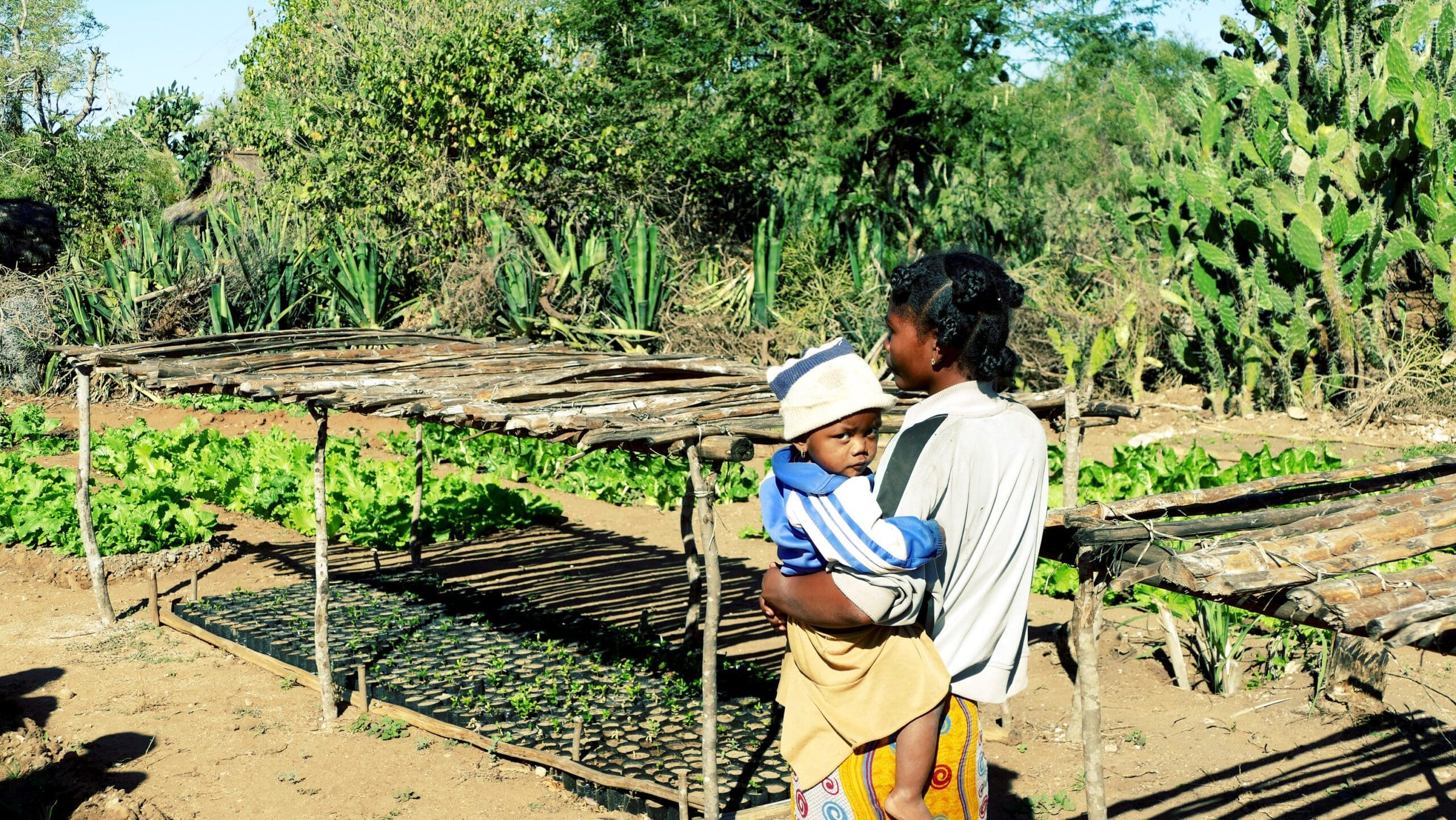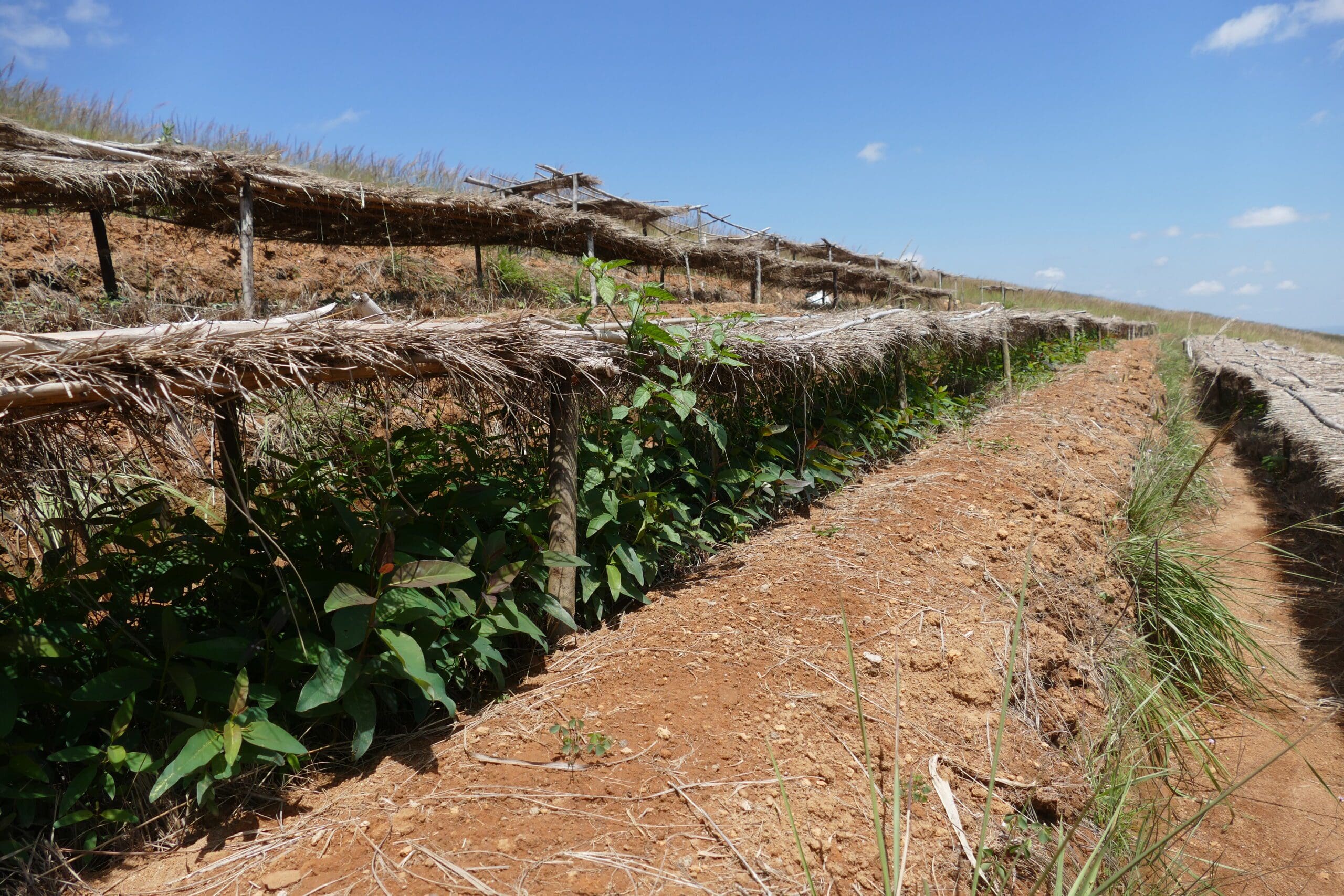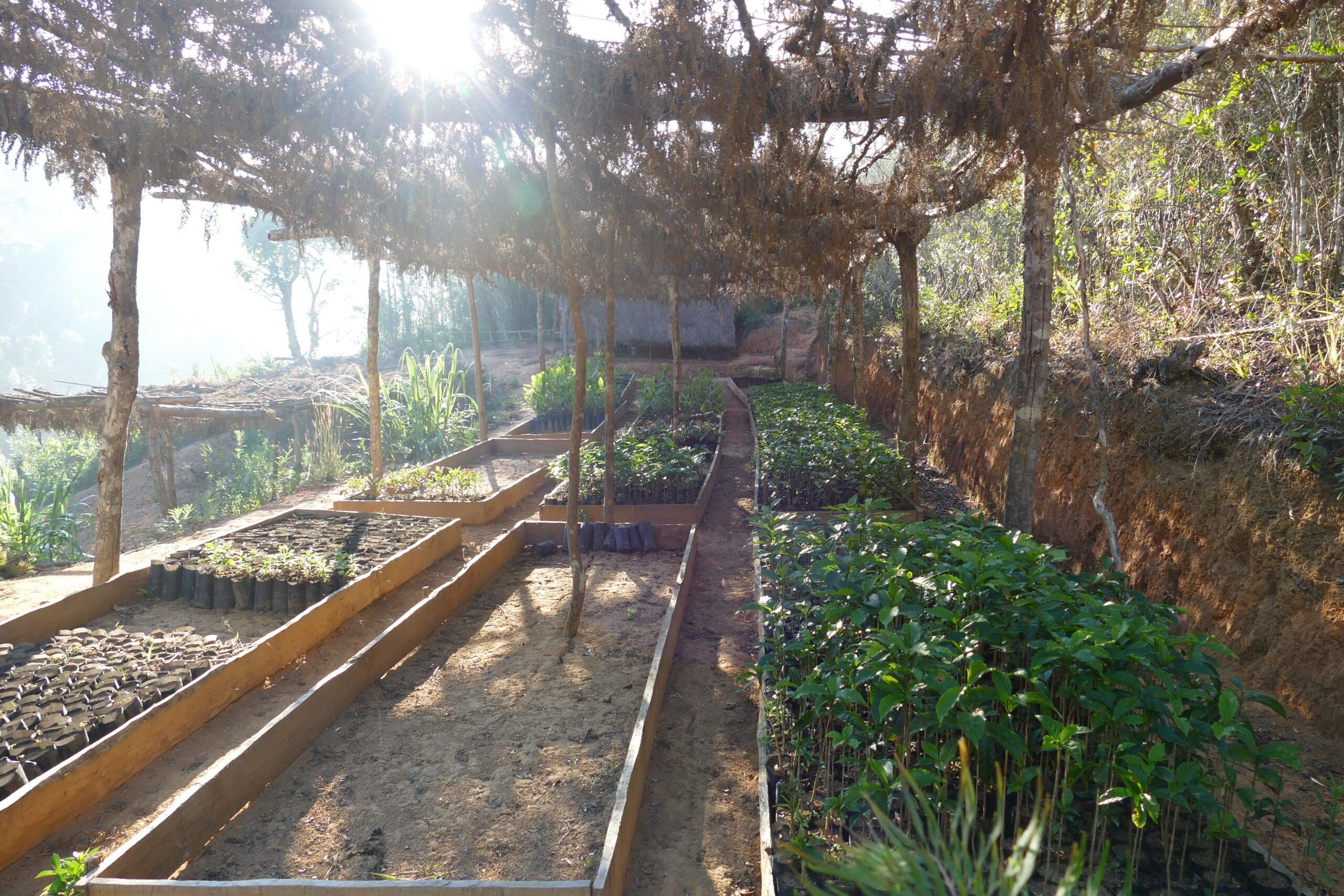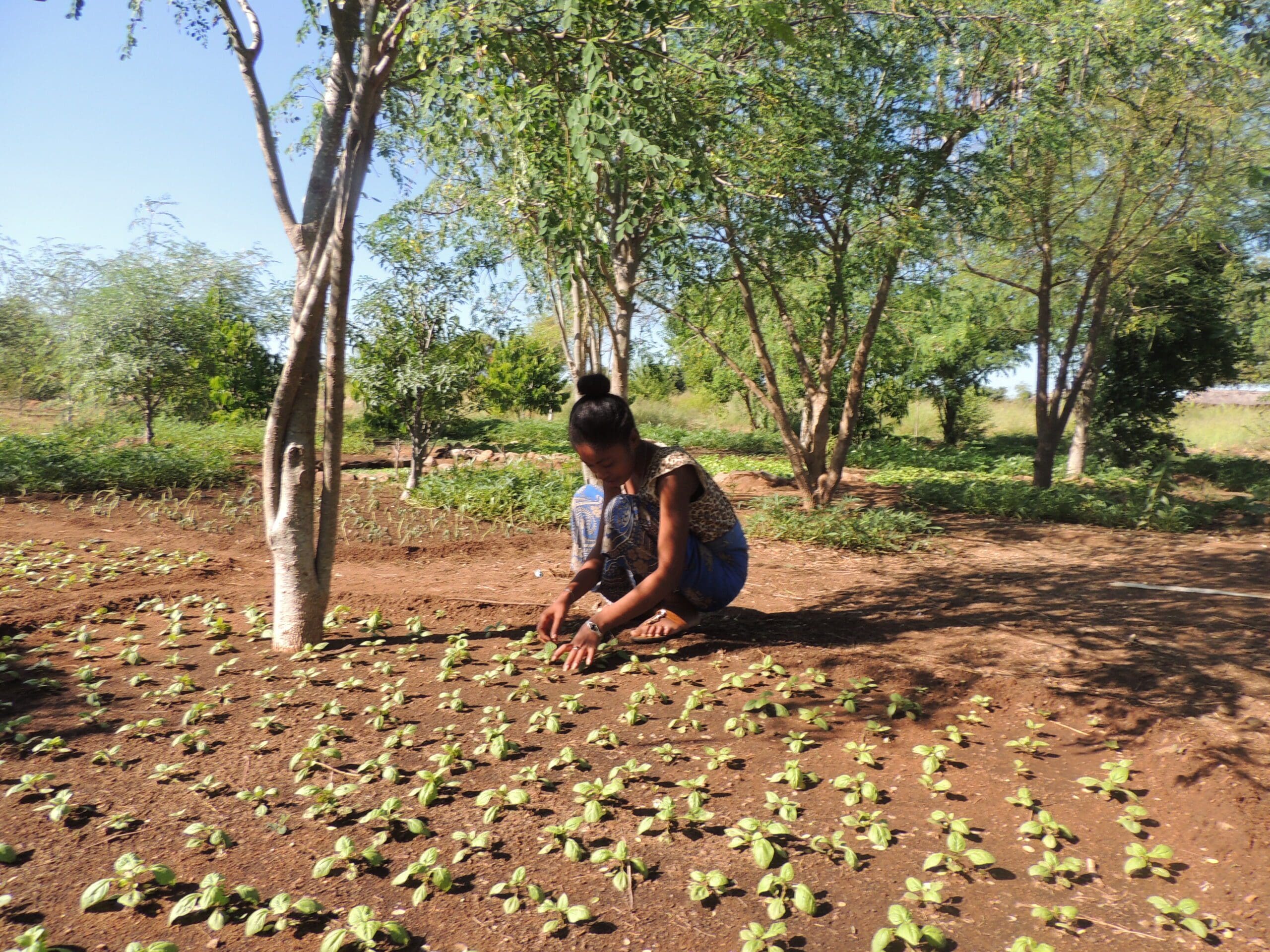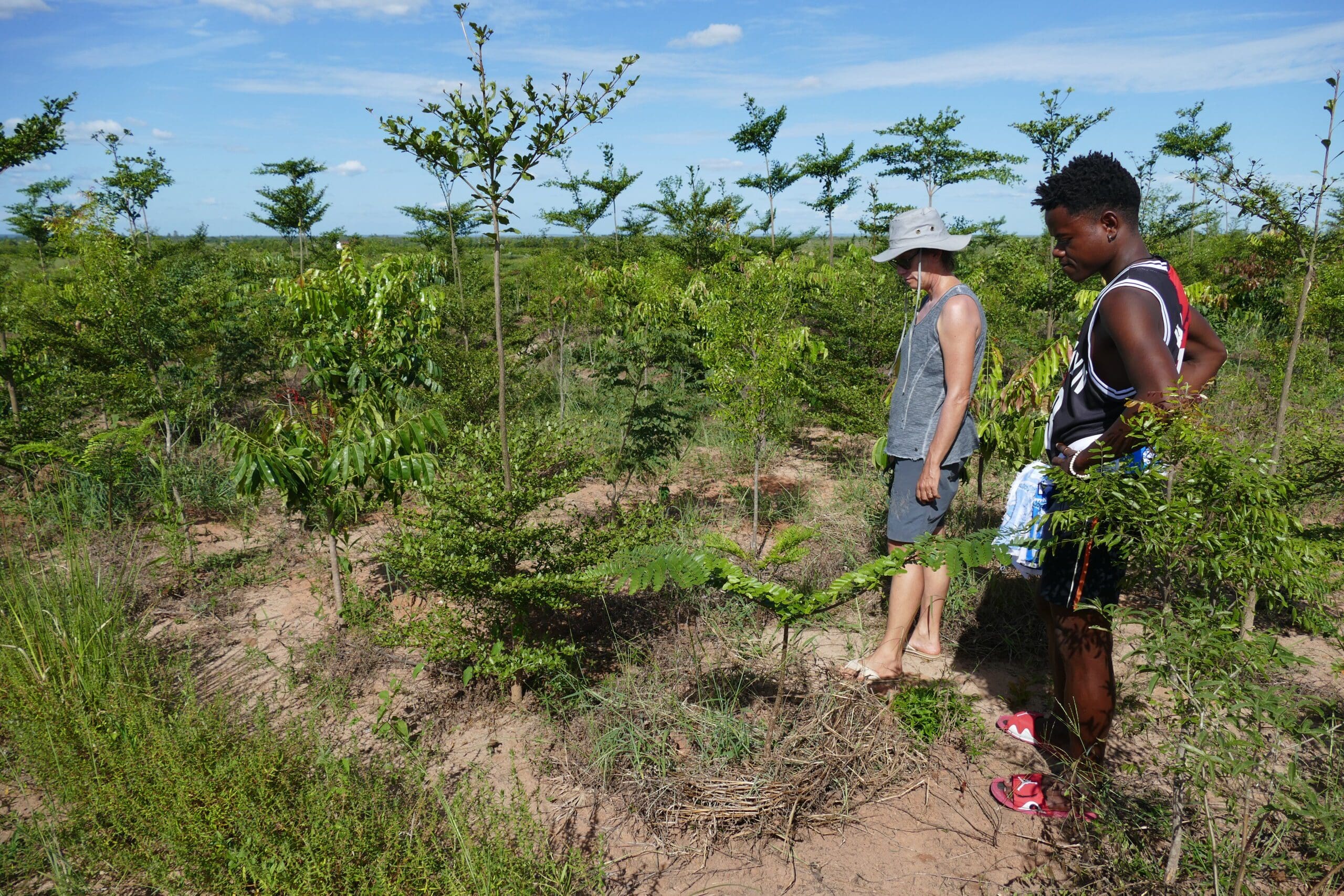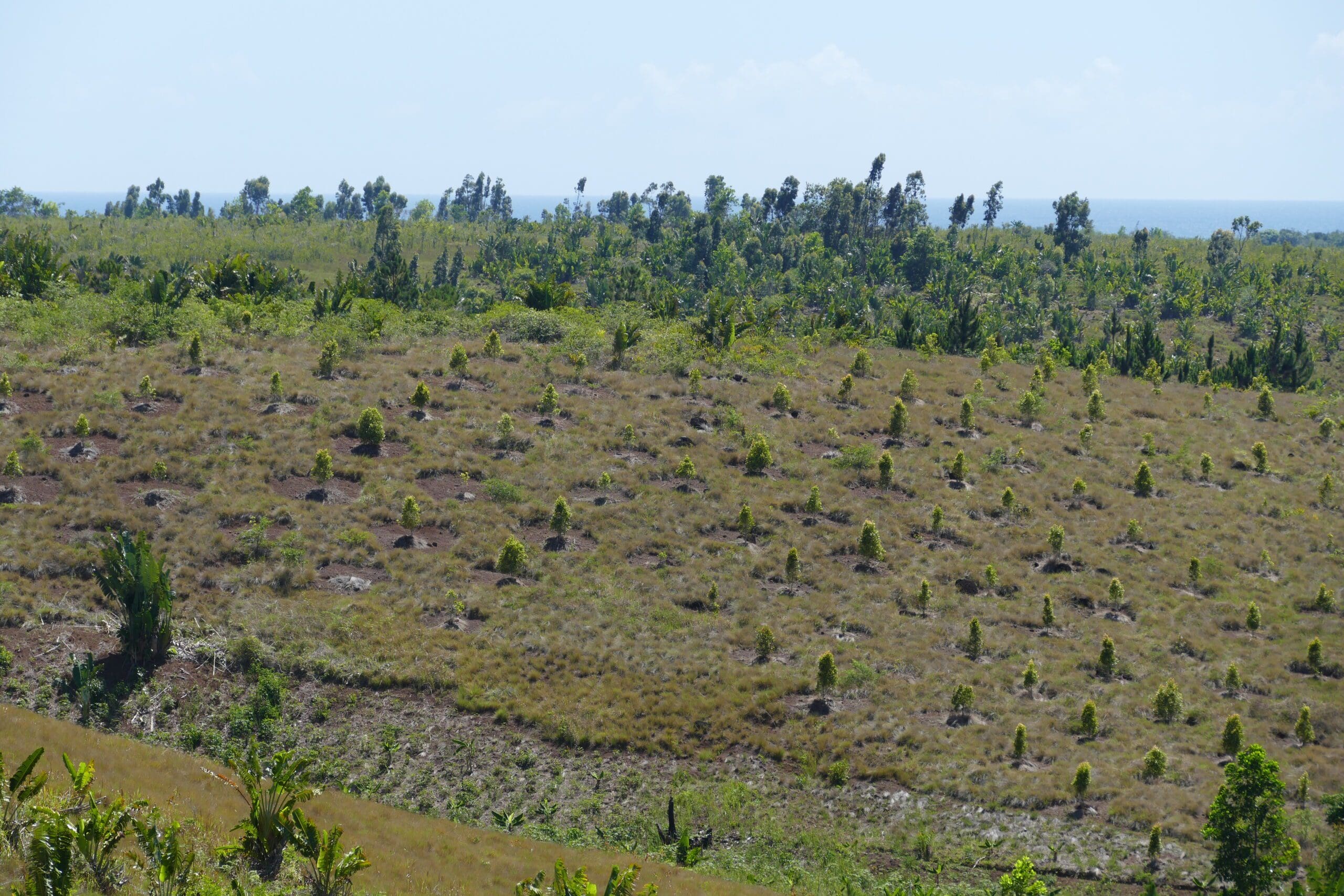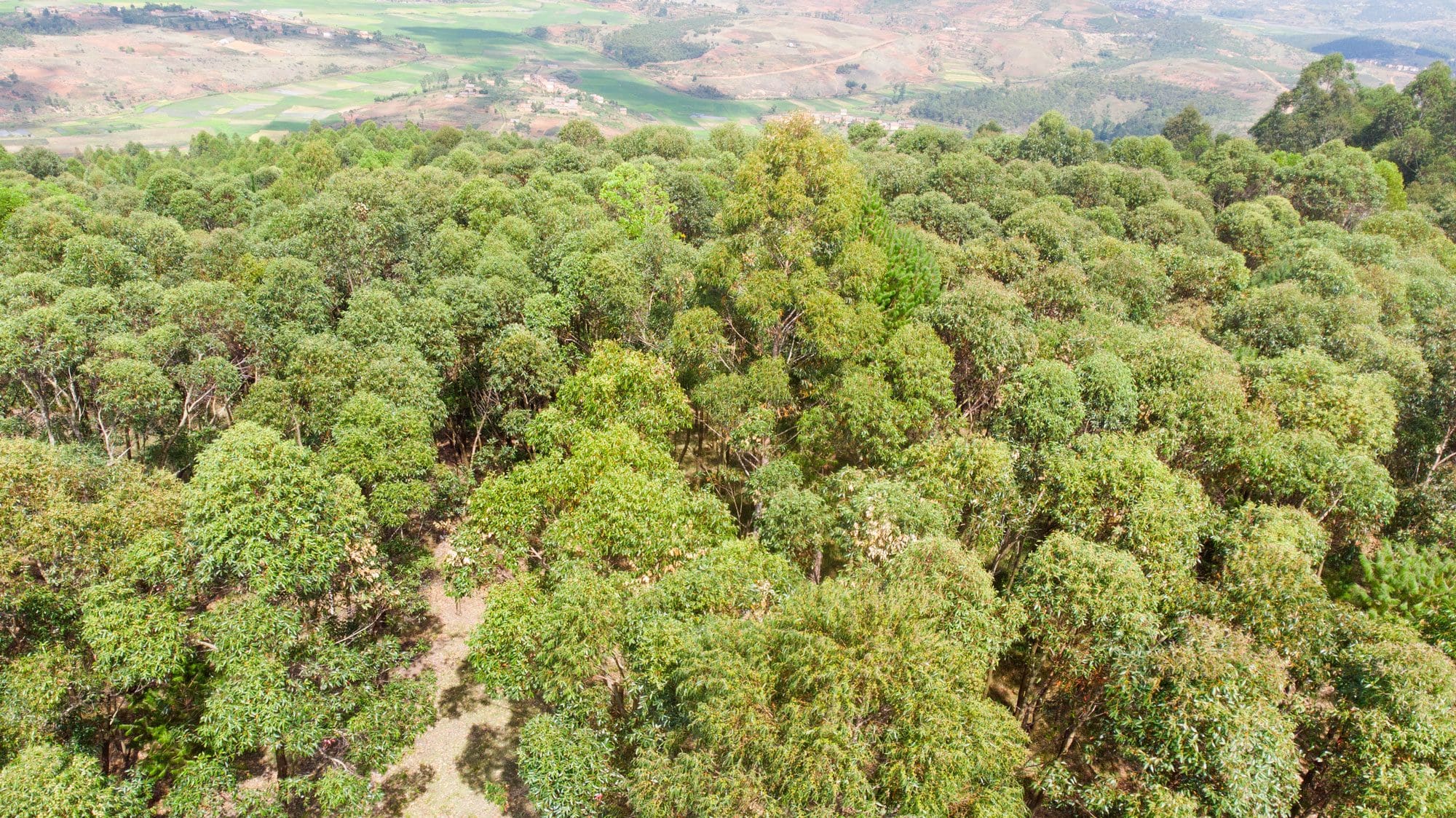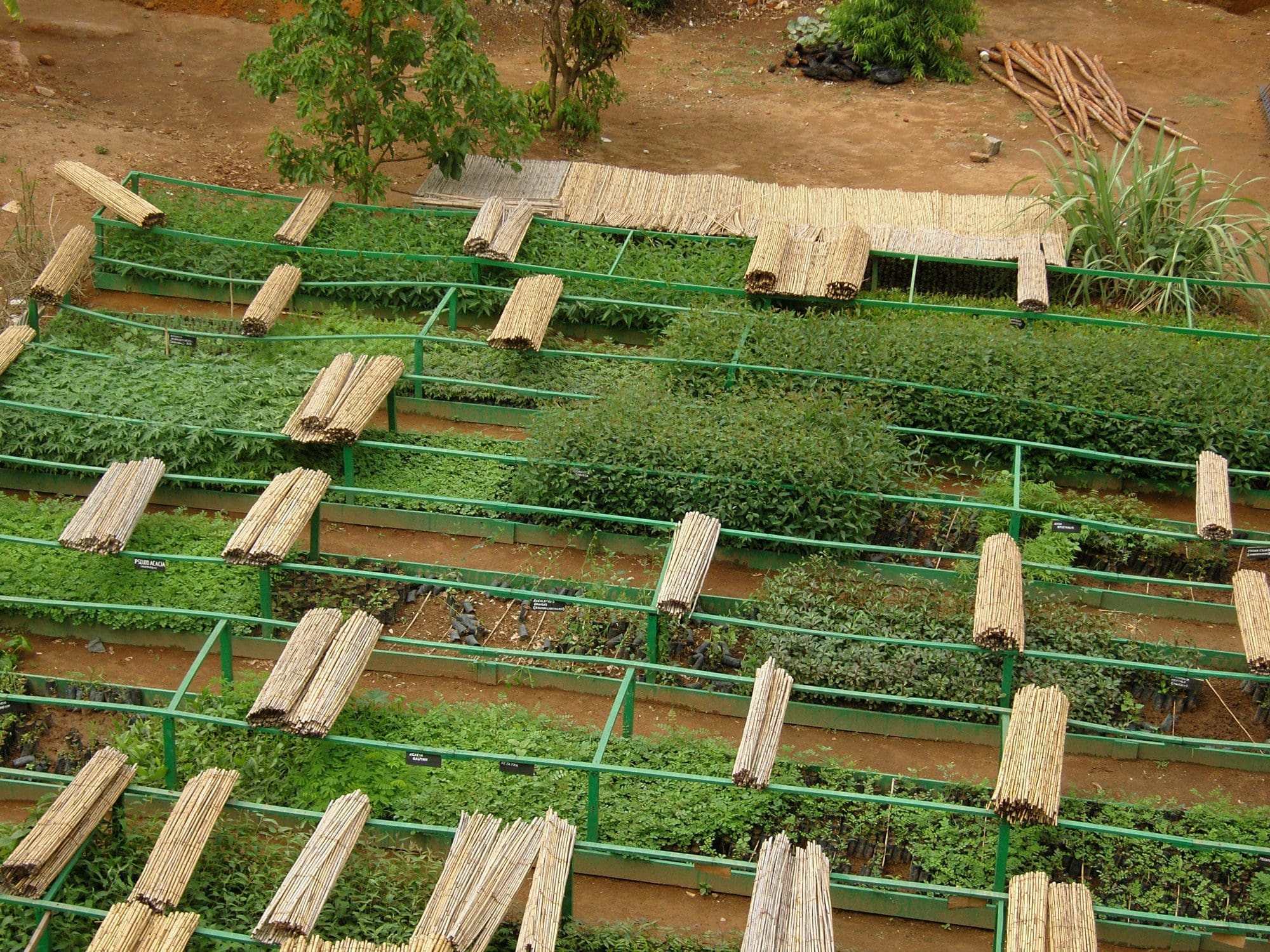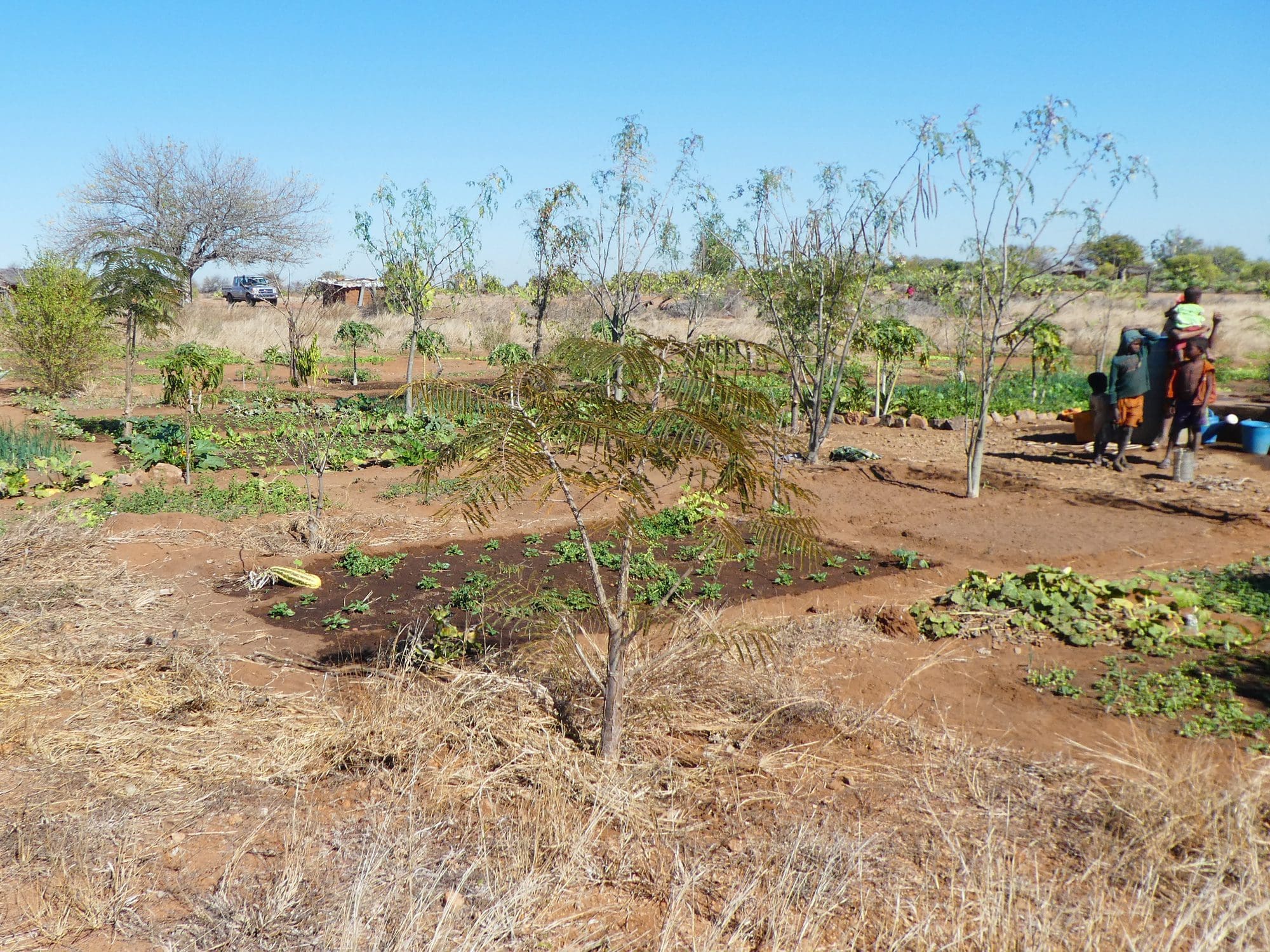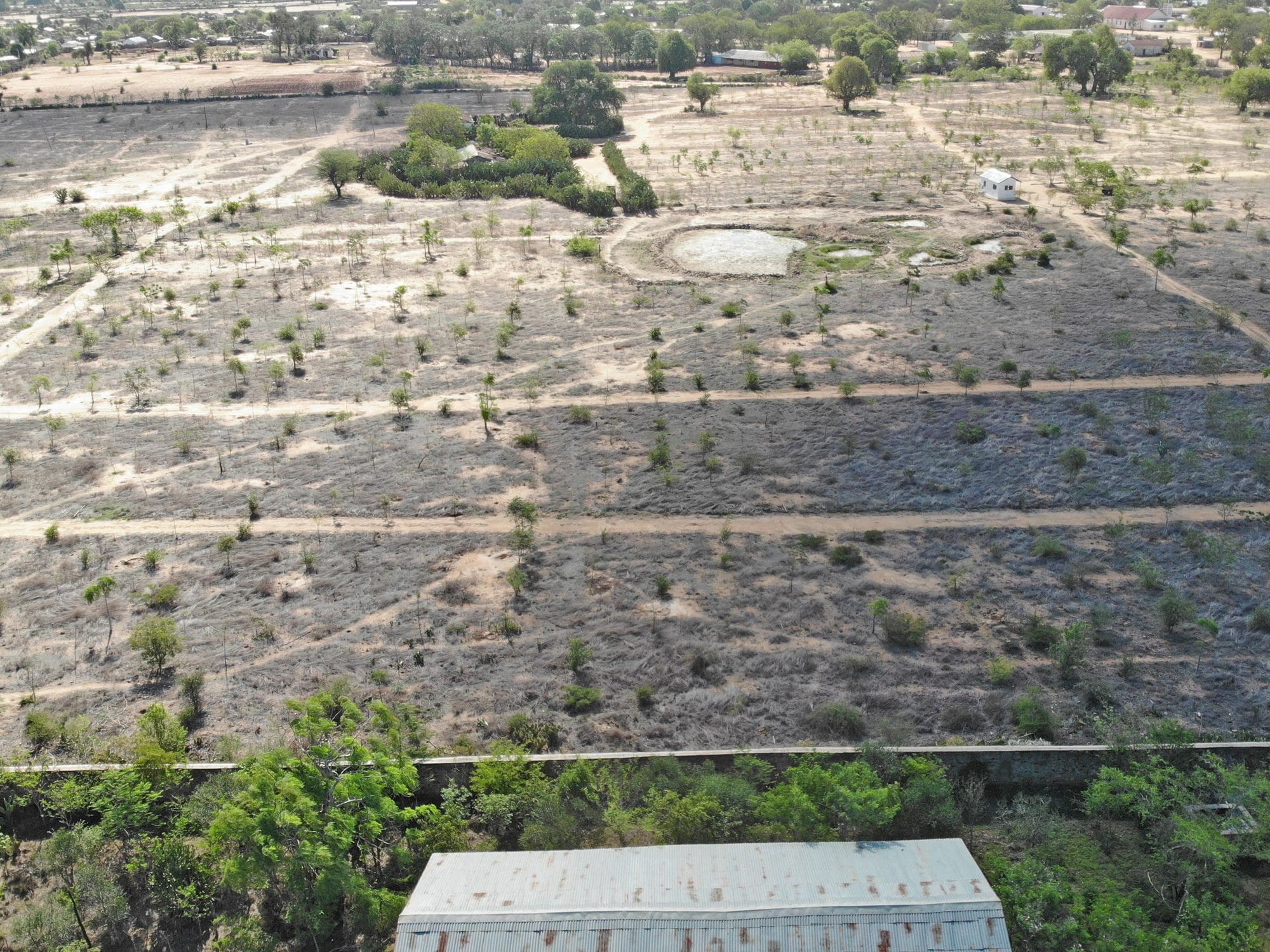Reforestation
Reduction of fuel consumption through cookers
Preserving nature and creating food security with trees
Up to half a million hectares of forest are lost in Madagascar every year. Reducing fuel consumption by cookers will not be enough to preserve the forests in Madagascar. The education and awareness-raising measures have a long-term effect and will not be able to solve the problems in the short term. That is why ADES is also involved in reforestation. With partner organisations, ADES implements larger reforestation projects. Together with small village communities, ADES fights to preserve the fertility of the soil and to improve the food supply through reforestation.
Over the past twenty years, ADES has gradually expanded its afforestation efforts. ADES' experience in this field has grown accordingly. Staff members are continuously trained and pass on their knowledge to the partners. Partners are mainly village communities or non-governmental organisations.
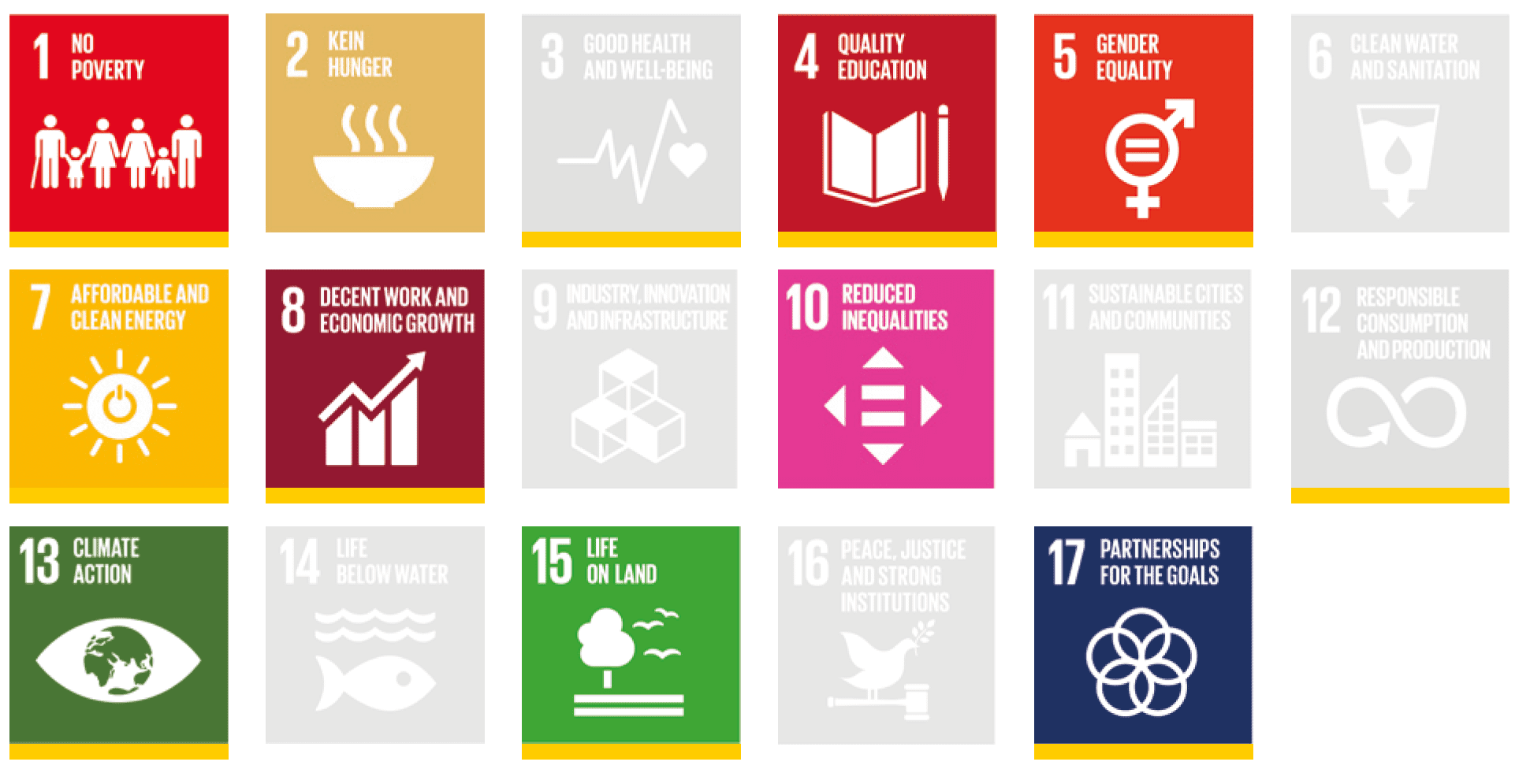
Reforestation project video
With village communities and partner organisations
It takes about three years from a seedling to a well-grown tree. For this period of time, a tree costs three francs. This includes protective measures, training, monitoring and maintenance. ADES runs its reforestation projects with a long-term time horizon.
ADES carefully selects its reforestation partners. The goal is not fast growth, but sustainable growth that benefits the environment, the local population and the partners. In this way, ADES ensures a long-term commitment. The most important principles are:
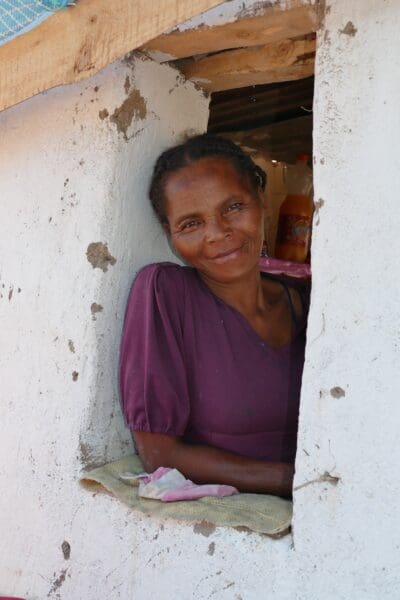
Madame Rasoha
Madame Rasoha, Association locale Samovo:
"We women are involved because we want to earn money and because the men are too weak on their own. We make up around 50 per cent of the association's members. I have planted more than 6,000 trees in the last five years and that makes me proud."
Reforestation with the local population
ADES is constantly stepping up its reforestation efforts. To this end, ADES is also working with local, specialised organisations. Projects can only be successfully implemented in the long term if the local population benefits from reforestation measures from the outset. Village communities that used to clear the forest down to the last tree become reforestation partners who look after the forest themselves and manage it sustainably.
